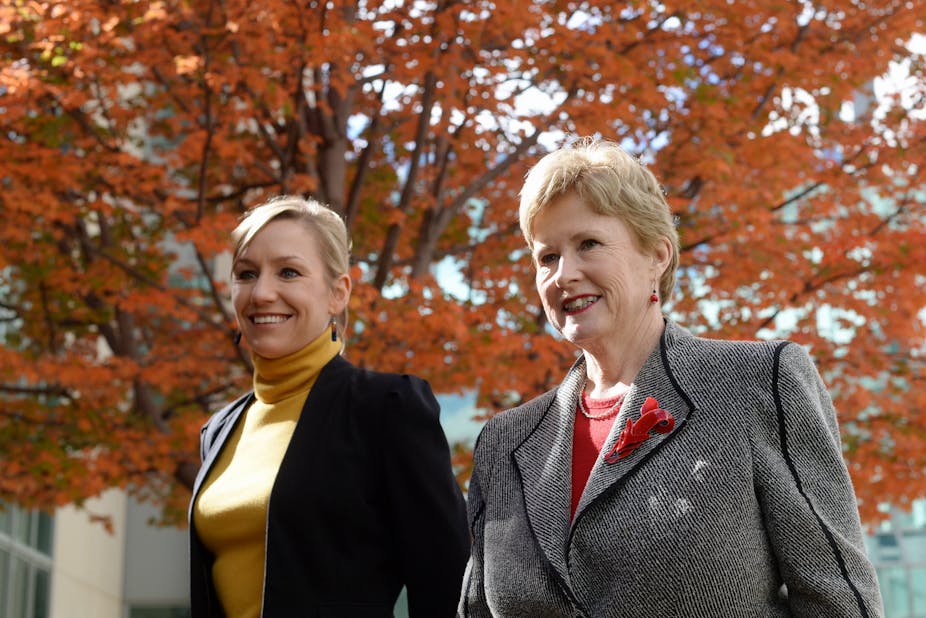The corruption scandals facing New South Wales politics are about as complex as they come. The sheer number of investigations, seemingly involving a conveyer belt of familiar faces, have made the question of “who next?” seem almost as valid as “what next?”.
Perhaps not surprisingly, given the high-profile scalps already claimed by these investigations (including premier Barry O'Farrell), the recent scandals have caused some, such as political commentator Gerard Henderson and former NSW Liberal MP Bruce Baird, to argue the power and efficacy of the NSW Independent Commission Against Corruption (ICAC) are too strong.
Other groups, such as the Greens, have called for the establishment of a “national ICAC equivalent” to ensure a “clear separation between business and politics”. This is not the first time these calls have been made, but they continue to gain little traction.
The ongoing ICAC hearings in NSW have revealed that there should be greater regulation and monitoring of Australian politics by an independent organisation or committee. However, implementing a national body would be fraught with difficulties in practice.
Independent anti-corruption organisations already exist in New South Wales, Queensland, Western Australia, Victoria, Tasmania and South Australia. These vary slightly in operational structure and scope, but all focus on reducing levels of corruption.
As each of these bodies is supported by state-based legislation, definitions (and thus understandings) of corruption vary slightly between the states. Any national body would have to navigate potential jurisdictional overlaps, as well as differences in legalistic understandings of corruption, across the states and territories. This is not an easy task.
Such a proposed federal body should not focus solely on the link between politics and business, as the Greens have suggested. Strong ties between politics and business present a corruption risk, but it is not the only one.
Other risks include the handling of confidential information, and improper supervision. The case last year of Victorian police officers socialising with bikies also demonstrates that not all risks occur during business hours. Creating an organisational focus based on the problems of the day risks creating an organisation that isn’t relevant to the problems of tomorrow.
However, a number of countries have succeeded in establishing effective national independent anti-corruption organisations. Two of note are Singapore’s Corrupt Practices Investigation Bureau (CPIB) and the Hong Kong ICAC. Both of these organisations were established in light of widespread corruption and in the face of strong opposition. Both continue to have a strong presence.
What makes these organisations notable in comparison to Australia is the length of time that they have been operational. The CPIB was established in 1952 and the Hong Kong ICAC in 1974. It is the model of the Hong Kong ICAC that is adopted in most Australian states.
These organisations have weathered scandals, and through a conscious effort of education and community engagement – in addition to ongoing internal reviews – have ensured ongoing relevancy and efficacy.
The current critiques levelled at the NSW ICAC have had a flow-on effect to other Australian independent anti-corruption organisations. Victoria’s Independent Broad-based Anti-corruption Commission (IBAC) was recently criticised for not having enough “runs on the board”. Lawyer Eric Dyrenfurth painted an Orwellian picture of Victorian politics, in which politicians are subservient to the self-power-enriching, ideology-free mindset of the “machine”.
This, Dyrenfurth argued, is what caused the “toothless tiger” that is the Victorian IBAC.

It should be noted that Dyrenfurth is not the first person to consider the IBAC a toothless tiger. I have made the point previously in The Conversation. However, to say that this is proved by the lack of “completed investigations” listed in the IBAC’s latest report is problematic.
Dyrenfurth identifies that listing ten completed investigations out of 24 commenced is “hardly runs on the board” and is proof of both the weak-kneed nature of Victoria’s IBAC and the comparative success of the NSW ICAC. When you consider that between 2012 and 2013, the NSW ICAC conducted 22 investigations from 3000 complaints – and that only six of these 22 resulted in reports to parliament – it becomes clear that adequately fighting corruption is often less about getting runs on the board and more about creating awareness.
A national survey of attitudes to corruption conducted by the ANU in 2012 found that less than 1% of Australians had any personal experience with corruption, yet 43% of people think that levels have increased.
In addition, only half of those surveyed said they knew where to report corruption. Of that half, only 5% said they would report it to an anti-corruption organisation.
There is a lot of confusion surrounding corruption in Australia, both in and out of politics. Corruption organisations need legislative teeth, yet they also need a strong community presence. We only need to look to Hong Kong and Singapore to see the role that education and prevention efforts play in ensuring both the strength of an organisation and the effective management of corruption levels.
When it comes to fighting corruption in Australia, let’s focus on improving what we have. We need better efforts, not more of them.

